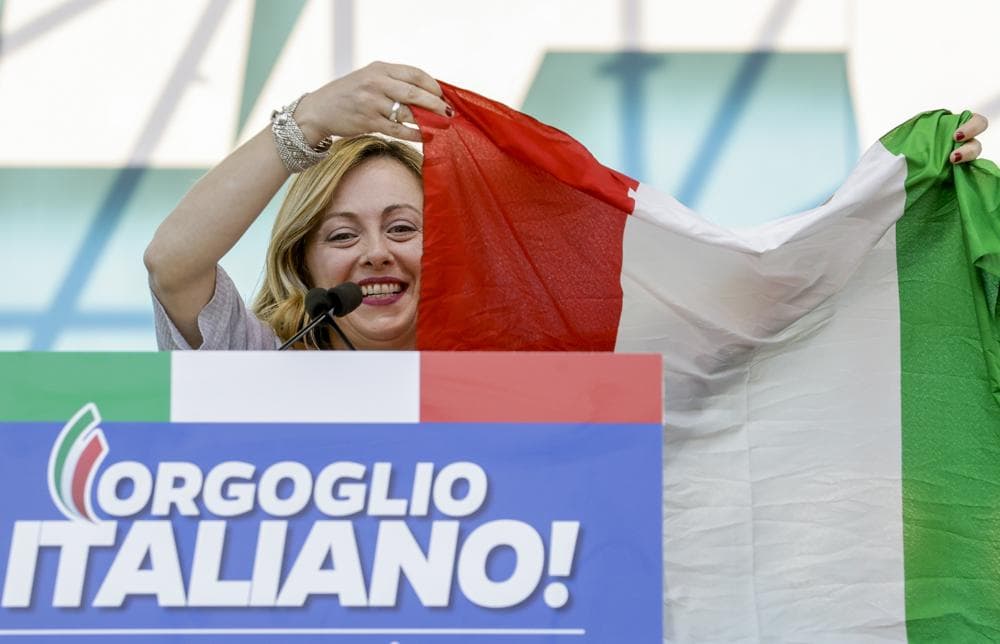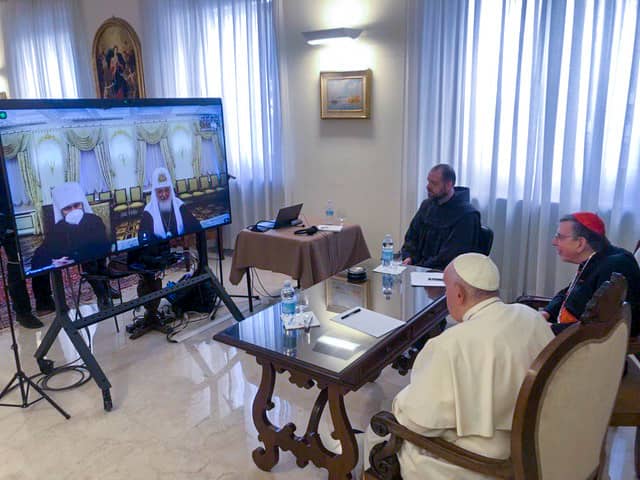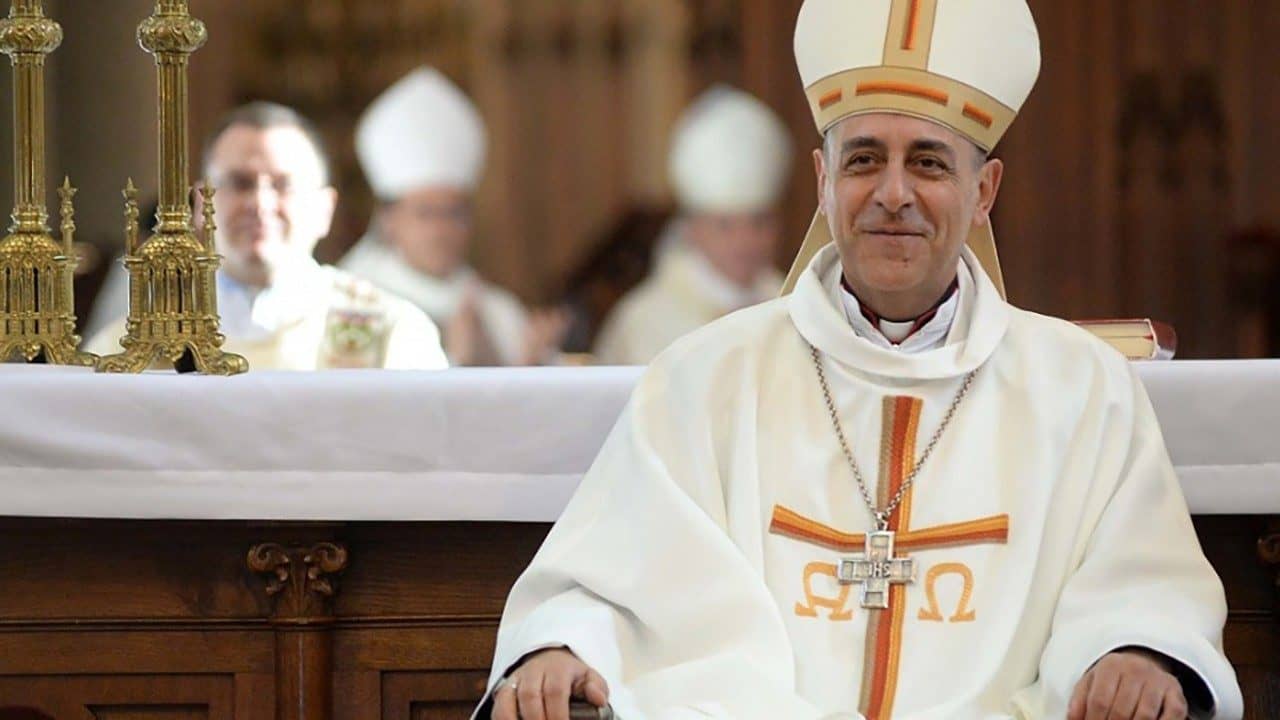ROME – Vatican politics take center stage this weekend in Rome, as Pope Francis presides today over a consistory to create new cardinals and then will lead two days of discussions with all the cardinals of the world on Vatican reform on Monday and Tuesday.
In effect, this makes the next 96 hours the equivalent of the Iowa Caucuses on the Vatican beat, with basically all the plausible contenders to be the next pope on display.
For Italians, this Vatican drama is unfolding at the same time their country’s future is also up for grabs, with national elections looming in less than a month. One key difference is that while only God knows who the next pope may be, by now the identity of the next Italian Prime Minister is almost a mathematical certainty.
Polls show a commanding advantage for the center-right coalition led by the Fratelli d’Italia party under Giorgia Meloni, which makes the 45-year-old with a background in Italian neo-fascism, who’s often compared to France’s Marine Le Pen and Hungary’s Viktor Orban, the odds-on favorite.
Should that come to pass, the stage will be set for a fascinating contrast in Italy between two very different brands of 21st century populism – the right-wing, nationalist sort embodied by Meloni, and the progressive, globalist populism associated with Pope Francis’s social agenda.
Like virtually any conservative in Italy, Meloni touts her Catholic faith, though she’s worlds removed from her coalition partner Matteo Salvini, leader of the far-right Lega party, who’s infamous for brandishing Bibles and rosaries of Our Lady of Medjugorje at political rallies.
“I’m a politician, not a cardinal,” Meloni famously said in 2020. “I’ve never liked politicians who do what the church says just because the church says it.”
Meloni published an autobiography last year titled, simply, Io Sono Giorgia (“I’m Giorgia”), with the subtitle Le Mie Radici Le Mie Idee (“My Roots, My Ideas”). In it, she spoke among other things about the popes during her lifetime, expressing deep admiration for St. John Paul II and occasional incomprehension of Pope Francis.
Here’s her verdict on John Paul II.
“He was the greatest pope of the modern era and the greatest statesman of the 20th century,” Meloni wrote. “But he was also more. As they say, it’s almost impossible to understand the value of something until we lose it.”
“John Paul was elected in 1978, a year after I was born,” she wrote. “When he died in 2005, I was 28. For almost 30 years, he was always there. It was as if I had lost my grandfather, because he, simply, had always been there … He was a great man, a saint.”
Meloni was not equally glowing in her description of Pope Francis.
“Maybe it’s age, maybe the memories, but even though I’m Catholic and I’ve never allowed myself to criticize a pope, I admit that I haven’t always understood Pope Francis,” she wrote.
“Sometimes I feel like a lost sheep, and I hope one day to have the privilege of being able to talk to him, because I’m sure that his big eyes and his direct words can give meaning to the things I don’t understand.”
Earlier, Meloni had been blunter: “I’m a believer and I listen to the words of His Holiness, but on a political level I don’t always share them,” she said in 2020. “When that’s happened, I’ve said so.”
She went on to provide a concrete case in point.
“For example, I disagreed when the pope’s almoner went to turn the electricity back on in a social center that organizes raves in Rome, making money from it,” she said.
The reference was to an episode during Christmas 2019 when Polish Cardinal Konrad Krajewski, the pope’s top charitable official, helped reactivate the electrical supply in a Roman building that had been occupied by squatters unable to pay rent, where city officials had cut off utilities in an effort to drive the occupiers out. Italian media outlets reported that underground raves in the facility generated roughly $300,000 in annual profits.
In the abstract, one might imagine that the stage will be set for unrelenting conflict between Italy’s two centers of power, nestled on opposite sides of Rome’s Tiber River.
On the other hand, it’s worth remembering that Francis is an ardent advocate of female empowerment, so he may well feel there’s something to celebrate with the advent of his adopted country’s first female Prime Minister.
Moreover, this wouldn’t be Francis’s first experience with an Italian government hostile to some elements of his agenda.
Four years ago, during the first government of former Prime Minister Giuseppe Conte, Francis had to endure Salvini as the country’s Minister of the Interior, whose iron refusal to allow migrants and refugees to disembark in Italy actually led to a criminal indictment in Sicily. Salvini is currently still facing trial on one charge of kidnapping, while another was dismissed.
Assuming Meloni wins, Salvini may be poised for another bite at the apple, though on the subject of a repeat performance as Interior Minister Meloni recently said, “He’s capable of it, but these aren’t things to decide in advance.”
One more thing Francis may see as an advantage about a Meloni victory: It would mean that Cardinal Matteo Zuppi of Bologna, a key Francis ally and the new president of the Italian bishops’ conference, will be in the spotlight continually as the leading Catholic commentator on the new government.
In sum, no matter what happens this weekend on the Vatican scene, Francis still will be pope for the foreseeable future, which means he’ll also still be the Primate of Italy. The country over which he’s called to exercise ecclesiastical leadership will, it seems, be under new political management, and the months to come could pose some fascinating church/state scenarios.
In any event, should Meloni win, she’ll undoubtedly get that tête-à-tête with Pope Francis she publicly longed for last year – and, although the Vatican is deeply unlikely to do it, they could probably erase their annual deficit in one fell swoop simply by making it a pay-per-view TV event.















